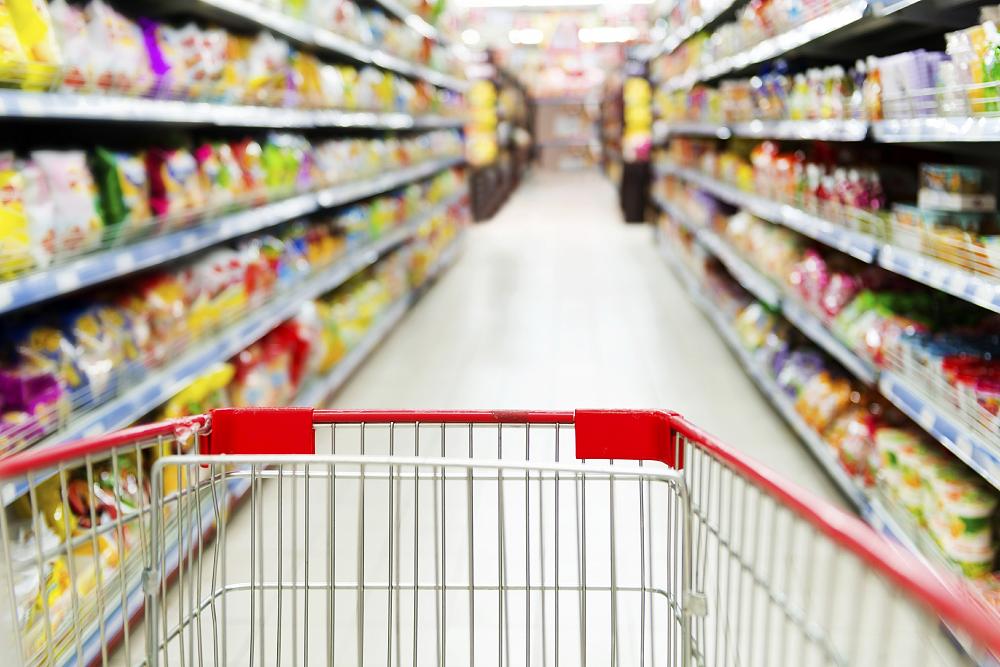As New Zealand has moved through the alert-levels designed to help eliminate Covid-19 in our country, many school students have worked as essential workers at supermarkets. Student reporter Aleisha Smith looks back at a period where her part time job became ‘essential’.
As a checkout operator at a supermarket, I have personally experienced working during alert-levels two and three and like the rest of the staff, have had to adapt to the different shopping behaviours of customers and the new practices implemented for the safety of staff and customers alike.
First: Panic-buying. In order to leave their bubble as little as possible and with the worry that New Zealand would stop receiving imported goods, many customers were loading up their trolleys with large quantities of pasta, flour (it seemed baking was a common pastime in lock down) and toilet paper (which caused some issues amongst our neighbours over the ditch).
To ensure that there would be enough for everyone and because of global shortages of products like rice, some limits were placed on how many high demand items of a specific type customers were able to buy.
A major shift in practice for staff, included wearing gloves and masks and carrying out additional cleaning practices. Although using the screens on our till while wearing gloves took some adjusting to, (not to mention their tendency to dry out your hands,) I understand their importance and they make me feel safe. Often customers come in wearing gloves and/or masks themselves.
Until recently, there has also usually been someone at the door of our supermarket, controlling how many people are entering and exiting the store. Bottles of hand sanitiser continue to be placed at the door, throughout the store and at checkouts for customers and staff use.
Another significant shift in practice was the installation of perspex screens around checkouts. Although important for safety, it is now more difficult to converse with customers as the screens make it hard to hear and so the communication element of a sale, something I enjoy, is often missing.
Most customers have been understanding and respectful of this measure, as they have of the other measures put in place, but some have to be reminded to remain behind the screens when they are not doing so.
At the checkout, contactless payment through PayWave on some debit and credit cards or systems like Apple Pay are also of preference nowadays, while cash-handling is discouraged to minimise the contact between customers and staff.
In addition to these quite obvious changes in the way we do things, the atmosphere in store has become a little strange and alien. Although I wasn’t really working when this occurred, I’m aware that the queues stretched far outside the stores and fewer customers were in stores at a time, taking away the typical bustling feel of supermarkets, which has since started to return.
While there isn’t that same connection formed with some customers who are a little aloof during this time, for some, it is their first time out of the house in weeks. Although they may be a little apprehensive and unsure of how things work at first, they are usually quite chatty (although the Perspex screens make talking a bit difficult).
Since the move to alert-level two, however, customers don’t seem to be taking physical distancing as seriously and the feeling within supermarkets appears to be slowly returning to what it was pre-pandemic.
As we school students working at supermarkets have adjusted to changes within our workplaces, we’ve also had to adjust to changes with our schooling. As I wasn’t working during alert-level four and upon returning to work resumed my usual couple of shifts week, I felt my distance learning was not affected by work. I do know that some students juggled extra shifts with distance learning, which could prove a bit of a challenge sometimes.
I had a lot of spare time at home for distance learning and when I did go to work, I found it rather nice to get out of the house. I finished my shifts feeling satisfied and productive.
I think the morale and spirits amongst staff were like this as well: although it could be a little stressful working at this time, it was nice to get out and it felt good to serve people as essential workers. The extra gratitude we received from some customers made it more rewarding too.
By Student Report Aleisha Smith


